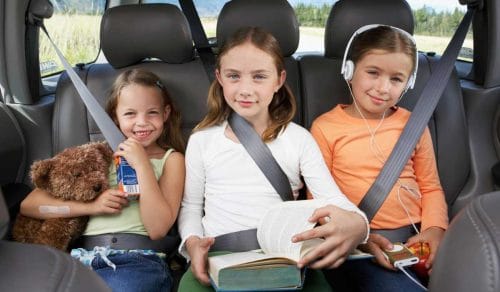School holidays and caravanning and camping holidays are a great way for families to enjoy the great outdoors together.
It is important to plan when travelling with kids and the following tips will provide you with the knowledge and ideas to make your holiday a pleasant one for all.
Pre Planning
- Ensure your kids are comfortable and safe whilst travelling.
- Kids tire quickly with long hours on the road, so plan frequent and longer rest stops. Stops should be at a park or playground with toilets.
- Book ahead to prevent missing out or the frustration if you arrive at your destination and you have to keep going with tired, hungry kids in the back.
- Establish a daily routine for everyday actions such as meals, showers, sleeping. Predicable routines will provide a sense of security and will limit those trying moments. A certain amount of flexibility and spontaneity is required for caravanning, but staying as close to your routine as possible can help you avoid unnecessary confusion.
- Involve your kids in planning the itinerary. They will respond to being a part of the trip and make it exciting. Show them on a map the journey and manage expectations by advising how long it will take. Let them choose one or two places or attractions to visit.
- Laundry can become overwhelming and accumulates faster with kids. Aim to wash every second day. Lightly soiled clothes can be scrubbed and rinsed in the shower or bucket and hung out to dry and take advantage of holiday park washing machine facilities.
- Plan your meals for the week including snacks and buy groceries for that week. Make it simple and easier to prepare.
- Visit the Visitor Centres of the area as they can provide information on current kid friendly activities and local events and advise on the local playground or swimming pool. Let your kids help plan your stay and choose brochures of interest. Some centres have interactive maps and displays.
- Always travel with a first aid kit stocked with band aids, bandages, gauze, antiseptic cream, children pain reliever, baby wipes and hand sanitizer.
- Waterproof mattress protectors or sheets are recommended for the little ones for sleeping.
- Don’t forget to pack the kids favourite toys. Tiny colouring books, stickers, word searches will pass the time. Board games are also handy on those rainy days or when the technology goes flat!
- Encourage older kids in making a travel journal and allow then to take photos or use a map to track the journey.
- With today’s technology encourage kids to visit the local areas website and read the history or identify the attractions.
- Download children songs for a sing a long or dance once your have set up camp.
Safety
- Ensure kids are aware of safety when travelling such as the dangers of the bush such as wildlife (snakes, spiders), jumping on logs, running around the campsite / campfire, unknown water, becoming lost if they wander.
- Stranger danger is just as important when camping as it is at home. Teach your kids to be aware of strangers and always know where your kids are.
- Water safety is very important when camping. Rivers and lakes aren’t usually fenced and a split second can end in tragedy. Teach your kids to swim and never leave them unsupervised.
Remember, travelling should be fun for all so if things change discuss your plans and adjust accordingly.




